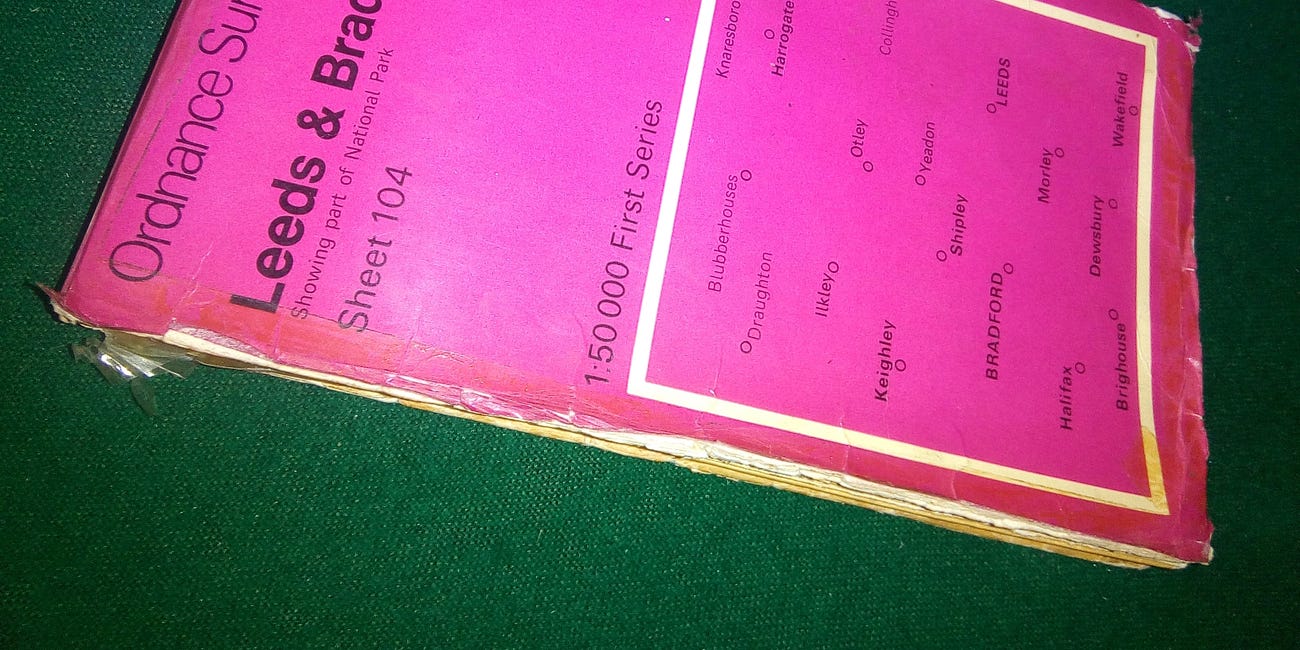Here’s something that caught my attention and that I’d like to share with you. It’s from The New Yorker and it’s about toilets.
Virtually everyone in the United States, and indeed throughout the developed world, is familiar with toilets. A typical flush toilet has a ceramic bowl filled with water. When the handle is depressed, or the button pushed, the water—and everything that’s been deposited in it—gets sucked into a pipe and from there into the sewage system. But how does this actually happen?
In a study conducted at Yale, graduate students were asked to rate their understanding of everyday devices, including toilets, zippers, and cylinder locks. They were then asked to write detailed, step-by-step explanations of how the devices work, and to rate their understanding again. Apparently, the effort revealed to the students their own ignorance, because their self-assessments dropped. (Toilets, it turns out, are more complicated than they appear.)
Sloman and Fernbach see this effect, which they call the “illusion of explanatory depth,” just about everywhere. People believe that they know way more than they actually do. What allows us to persist in this belief is other people. In the case of my toilet, someone else designed it so that I can operate it easily. This is something humans are very good at. We’ve been relying on one another’s expertise ever since we figured out how to hunt together, which was probably a key development in our evolutionary history. So well do we collaborate, Sloman and Fernbach argue, that we can hardly tell where our own understanding ends and others’ begins.
…
Where it gets us into trouble, according to Sloman and Fernbach, is in the political domain. It’s one thing for me to flush a toilet without knowing how it operates, and another for me to favor (or oppose) an immigration ban without knowing what I’m talking about. Sloman and Fernbach cite a survey conducted in 2014, not long after Russia annexed the Ukrainian territory of Crimea. Respondents were asked how they thought the U.S. should react, and also whether they could identify Ukraine on a map. The farther off base they were about the geography, the more likely they were to favor military intervention. (Respondents were so unsure of Ukraine’s location that the median guess was wrong by eighteen hundred miles, roughly the distance from Kiev to Madrid.)
Surveys on many other issues have yielded similarly dismaying results. “As a rule, strong feelings about issues do not emerge from deep understanding,” Sloman and Fernbach write. And here our dependence on other minds reinforces the problem. If your position on, say, the Affordable Care Act is baseless and I rely on it, then my opinion is also baseless. When I talk to Tom and he decides he agrees with me, his opinion is also baseless, but now that the three of us concur we feel that much more smug about our views. If we all now dismiss as unconvincing any information that contradicts our opinion, you get, well, the Trump Administration.
“This is how a community of knowledge can become dangerous,” Sloman and Fernbach observe. The two have performed their own version of the toilet experiment, substituting public policy for household gadgets. In a study conducted in 2012, they asked people for their stance on questions like: Should there be a single-payer health-care system? Or merit-based pay for teachers? Participants were asked to rate their positions depending on how strongly they agreed or disagreed with the proposals. Next, they were instructed to explain, in as much detail as they could, the impacts of implementing each one. Most people at this point ran into trouble. Asked once again to rate their views, they ratcheted down the intensity, so that they either agreed or disagreed less vehemently.
Sloman and Fernbach see in this result a little candle for a dark world. If we—or our friends or the pundits on CNN—spent less time pontificating and more trying to work through the implications of policy proposals, we’d realize how clueless we are and moderate our views. This, they write, “may be the only form of thinking that will shatter the illusion of explanatory depth and change people’s attitudes.”
https://www.newyorker.com/magazine/2017/02/27/why-facts-dont-change-our-minds
My go-to mantra tends to be: if the wagon you’re on looks like a band wagon, get off:
A Strange Land
Click above to listen to this article as a one-act play. Babies can do as they please. They’re allowed to barf, poo, sleep and eat. And when they don’t get what they want, they cry, till they get it. Because they’re helpless and vulnerable and sweet and ours.
If you look back at some of my contributions in the past, perhaps the foregoing explains how it is that I so often try to place people and events geographically. With place names, with distances, with compass directions. Trying always to gain a perspective relative to my own point of view. It led me to conclusions such as that Kyiv is directly to the east of where I live, whereas my instinct would be to place it to the southeast. Allowed me to answer correctly a recent quiz question asking which of these is farthest to the north: Bruges, Ghent, Brussels and Liège (answer’s below). Gives a feeling of understanding with people we’ve never met, even if we don’t even know what they look like. Just realising that our proximity is one that can be bridged by an airliner in the time it’ll take us to sleep off the day’s sloth tonight. Does it worry you that you might care less about people you cannot pinpoint on a map than those you can? Are you more concerned about bridge safety in Baltimore if you know that Baltimore is cheek by jowl with the US capital? Could you point to a map and identify the location of the Tay Bridge?
Here are some of my more geographically oriented pieces in the past. North is at the top.
A drop in the ocean ... of blood
Dr Seema Jilani is one of the few foreign medical helpers who has been allowed to enter the Gaza Strip by the Israeli authorities. She came from the US and spent two weeks at al-Aqsa hospital in Deir al-Balah. A paediatrician, she had hesitated at her usefulness in a war zone, expecting that the vast majority of patients would be war-wounded young men, …
When in Jerusalem, do as the Romans do
Thanks for reading The Endless Chain! Subscribe for free to receive new posts and support my work. My father’s old 1930s encyclopaedia contains the following illustration and attendant description. There’s a common misconception that the caesarean operation for giving birth is named after Caesar, but this is incorrect. In fact, it is because the man himse…
Are we there yet?
TV’s Liver Birds were chatting in one episode and Beryl had been out on the Sunday cycling with her new boyfriend. They’d headed at Tour de France speed to an unusual location, and so Sandra asked, “What did you do in wherever it was they went?” to which Beryl replied, groaning,
The “The”
This article was first published in LinkedIn on 11 April 2022. Madonna and I grew up together. Not that we ever met, but she’s three years older than I am, so the times we grew up in were the same, if the experiences different. I have no idea if Madonna was ever a philatelist, but with an active and varied private life, she may well have been (I mean, wi…
How I write—Comment j'écris—Hoe ik schrijf
Dear reader, Les francophones peuvent faire défiler vers le bas pour une version française. Nederlandstaligen kunnen nog verder naar beneden scrollen voor een Nederlandse versie. In fact, anyone can scroll down for French or Dutch versions, and perhaps you’ll want to learn those languages!
The Brussels Congress Column and its Freedom Quarter
In Brussels, there stands a monument dating from 1859, called the Congress Column. It marks the centre of a part of the city now known as the Freedom Quarter. It contains streets rejoicing in names like: Rue de la Presse (Press Street), Rue de la Croix de Fer
No long sentences
Thanks for reading The Endless Chain. Subscribe for free to receive new posts and support my work. 16 April 2014. 8.52. “The ship seems to be sinking.” Incheon to Jeju ferry, South Korea. 476 passengers. 325 school students. Capsize. No coordinated rescue effort.
Anarchy in the UK-raine: pondering black lines
First published 27 June 2022 Thanks for reading The Endless Chain! Subscribe for free to receive new posts and support my work. The others. That’s all of us. The Welsh. The Walloons. The Gauls. The others. Etymology is a strange area of study. It tells us where a word comes from, how it arose, how it was transformed during the history of its existence and …
Quiz time
Kyiv, Bucha, Snake Island, Borodianka, Chernihiv, Kramatorsk, Mariupol, Mykolaiv, Izium, Odesa, Kherson, Chernihiv, Zaporizhzhia, Donetsk, Luhansk, Slovyanska, Sevastapol, Lviv, Vinnytsia, Dnipro, Sumy, Bakhmut, Balakliia, Horlivka, Melitopol, Hostomel.
Bruges is farthest north.















Thank you for the reprint from the New Yorker, Graham. My view exactly. People believe whatever they are told if it makes sense to them without analysis. The toilet story is a great example. There was a cute cat video clip a couple of years ago (or more) when a couple left for work, their black and white cat would spend hours in the bathroom flushing the toilet and watching the water go down the drain. The cat showed as much brilliance as the average human being, he connected the flush handle with the flow of water. That is the level of understanding of how government acts as the Average American including too damned many of out legislators. I think Calliope (my cat) would make a way better Presidential candidate than any MAGAt